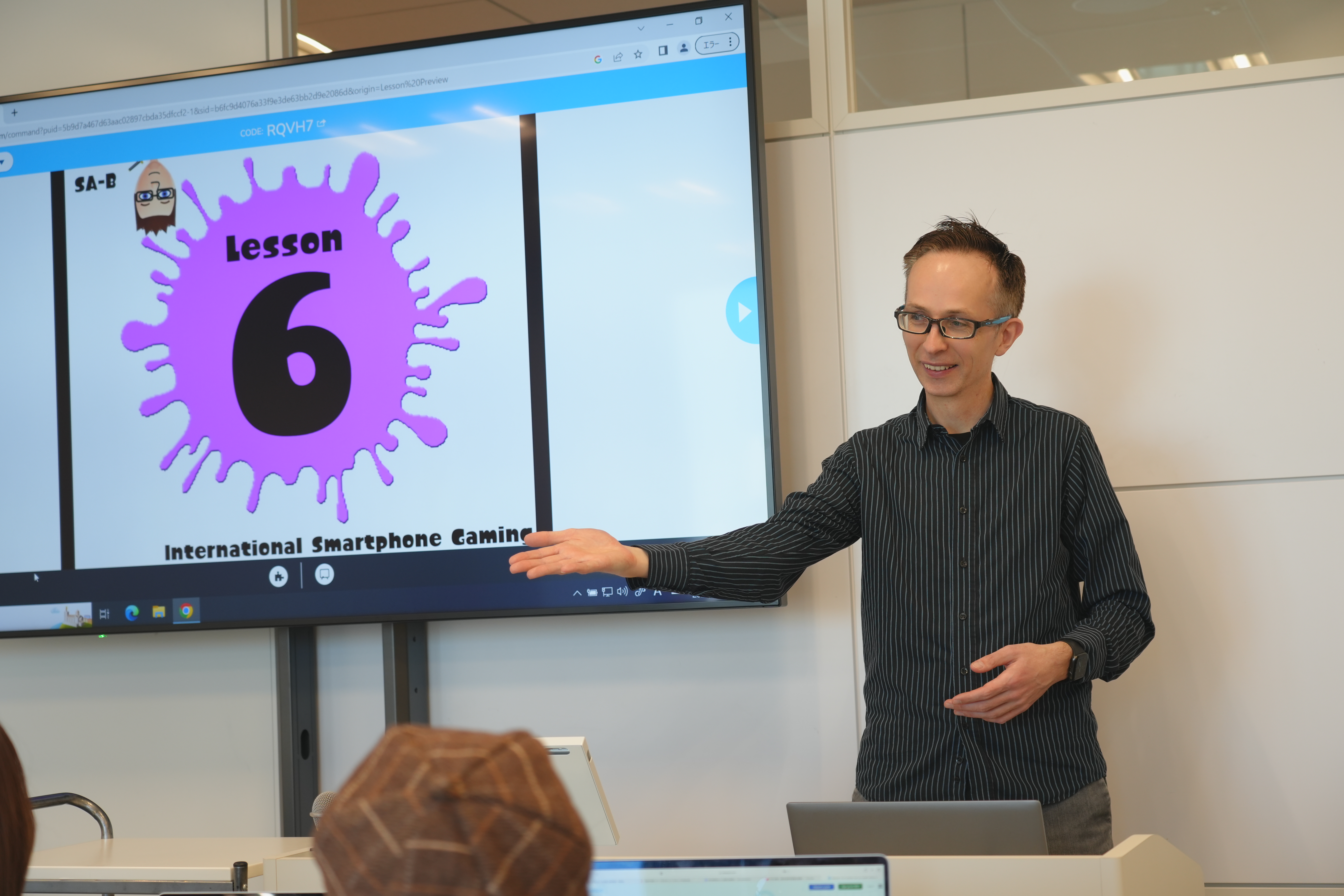ACADEMICS
Global Education

Improve your language skills and develop a global perspective while having fun
In addition to improving your Japanese language skills, which are essential for surviving life in unfamiliar Japan, you can also take foreign language courses, especially English. We provide level-based instruction in Japanese and English, so even those who are not good at foreign languages can improve their language skills step by step.
Level-based class formation
DHU has a diverse student body that includes returnees and international students, and their Japanese and English language proficiency levels at the time of admission also vary. At DHU, classes are divided according to the results of the placement test taken at the time of admission, so you can study without difficulty according to your level.
Learn using topics from specialized fields such as video and games
In Contents English, which starts in the second year, students learn specialized English terms related to movies, games, art, and more. For example, in the video field, students learn about the movie production process, movie history, and the roles of directors, screenwriters, and producers in English. Anime and manga are also used as teaching materials in Japanese subjects, so students can enjoy learning.
Many international students are also enrolled so you can experience an international environment.
In addition to learning second languages such as Chinese and Korean, DHU offers a unique opportunity to interact with international students from more than 40 countries and regions. The campus life, where languages and cultures of various countries are intermingled, will be a valuable experience for you.